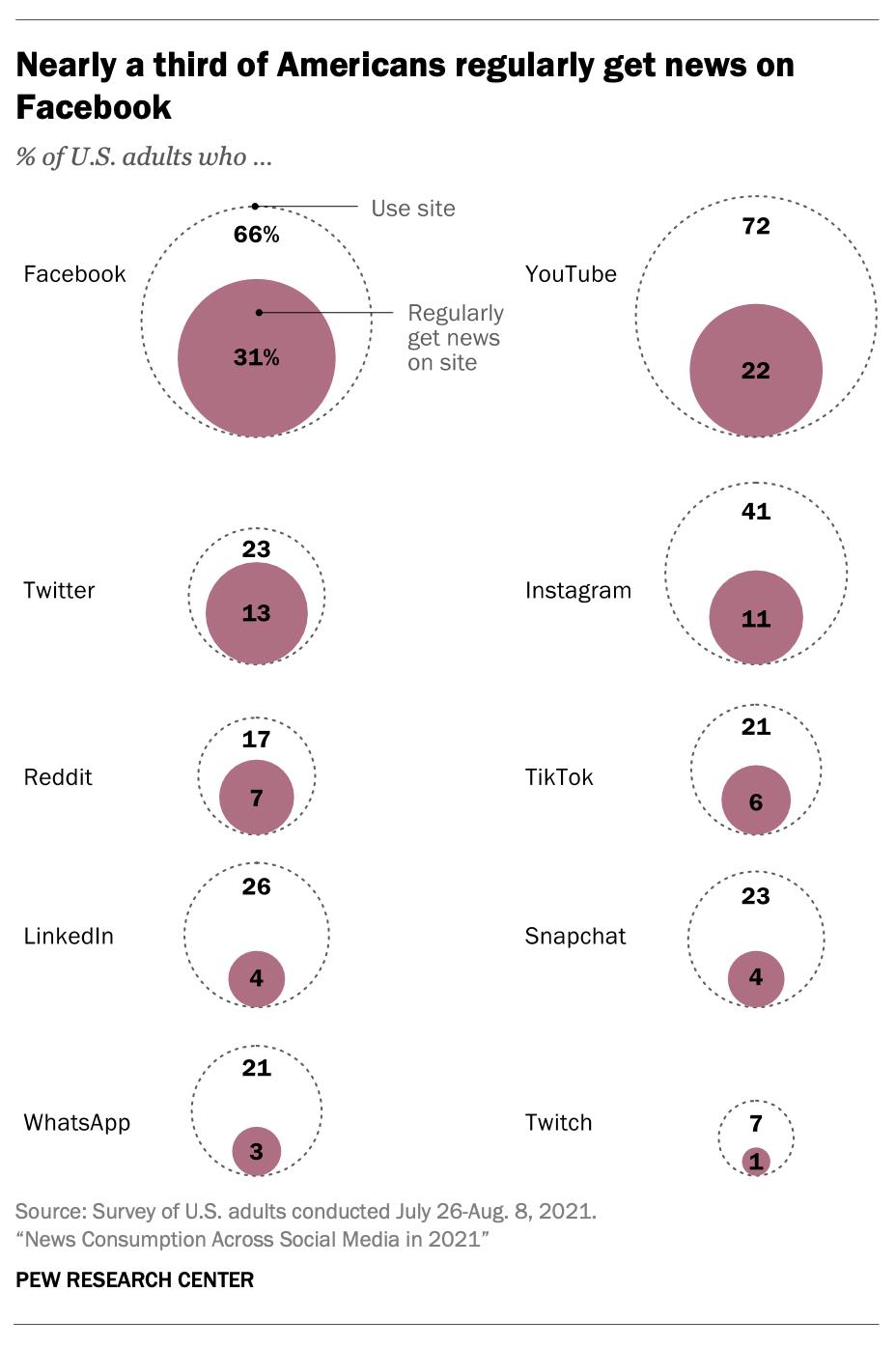
Meanwhile, oh, what a giant pain in the ass it has been for Zuck & Co.: Fake news, foreign propaganda, Covid lies, Nazis, horse paste, fact-checking, accusations of political bias, and a seemingly never-ending list of additional headaches. Because Facebook, architecturally, makes little distinction between the best sources and the worst — but, architecturally, incentivizes content that appeals to our less rational natures — it gets blamed for roughly 80% of what ails the world.
Maybe you think that’s fair; maybe you think it gets a bad rap. Either way, Facebook would be happy if all of it could be sucked right off its servers and replaced with more puppies and silly memes and Instagram sunsets. And the company has taken a steady series of steps to reduce the role of news, especially political news, on its platform, the latest just a few weeks ago.A new study out today from the Pew Research Center suggests it isn’t just Facebook that’s seeking a trial separation from the news — it’s also Facebook’s users.
As social media and technology companies face criticism for not doing enough to stem the flow of misleading information on their platforms, a new Pew Research Center survey finds that a little under half of U.S. adults (48%) get news on social media sites “often” or “sometimes,” a 5 percentage point decline from 2020.Across the 10 social media sites asked about in this study, the percentage of users of each site who regularly get news there has remained relatively stable since 2020. However, both Facebook and TikTok buck this trend.
The share of Facebook users who say they regularly get news on the site has declined 7 points since 2020, from 54% to about 47% in 2021. TikTok, on the other hand, has seen a slight uptick in the percentage of users who say they regularly get news on the site, rising from 22% in 2020 to 29% in 2021.
That people would be reducing their news use of social media isn’t shocking; you may remember that 2020 was a pretty busy year! 2021, for all its continued pandemicity, has been at least a little less insane, news-wise. (Since January 20, at least.)

But Facebook’s decline (7 percentage points) was substantially larger than Twitter’s (4), Reddit’s (3), Snapchat’s (3), YouTube’s (2), Instagram’s (1), or LinkedIn’s (1). (Besides TikTok, WhatsApp and Twitch saw increases, though small ones.)

And because Facebook’s user base is so much larger than other (non-YouTube) social platforms, the impact of that drop in news usage is magnified. If my back-of-the-envelope math is right, the net decline in news usage on Facebook was about 5× the size of the net decline on Twitter. Facebook’s seeing a bigger decline that’s happening within a much larger user base.

That this is all happening despite 2020’s splashy-sounding debut of the Facebook News Tab for all its (U.S.) users and the company wearing out its checkbooks writing checks to publishers around the world. As I’ve argued, those payments (and those from rival duopolist Google) should be understood more as paid lobbying than an actual attempt to center journalism as an important anchor of their platforms.
Facebook users tend to be more casual news consumers than users of more news-oriented platforms like Twitter or Reddit — so a reduction there is probably more significant to an individual user, in terms of their overall news diet. But that more casual news consumer is also the sort more likely to be time-targeted in their news consumption — the person who pays attention to politics for the 30 days before an election and ignores it the rest of the time — so a higher drop-off from 2020 shouldn’t be too surprising.
But still, fewer people counting on Facebook for news is probably a good thing — and a sign that the interests of the company and its users may be strangely aligned, for once.